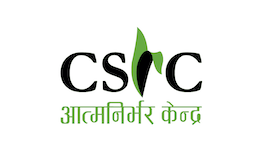MAFRA-Climate Smart Agriculture (CSA)
Program Name: MAFRA-Climate Smart Agriculture (CSA)
Duration: 2024-2027
Working Area: Lamahi Municipality, Rapti Rural Municipality, Rajpur Rural Municipality, and Gadhawa Rural Municipality Dang
Partners: Good Neighbors International (GNI)
The Deukhuri Valley community faces significant challenges due to climate change and natural disasters. This demographic shift, compounded by declining water availability and increasing climatic stress, is negatively impacting agricultural productivity and sustainability.
Adding to these issues, there is a growing trend of converting agricultural land for non-agricultural purposes and leaving farmland fallow, further reducing the area available for cultivation and affecting food production. The deterioration of soil health and loss of agrobiodiversity are additional threats, as both are vital for sustainable agriculture and food security.
Promoting sustainable land use practices is essential to prevent the misuse of agricultural land and ensure that fallow land is brought back into productive use. Additionally, managing and supporting livestock populations is critical, as livestock contribute significantly to the local agro-ecosystem and serve as an important livelihood source for many families.
The CSA project aims to create a sustainable and resilient agro-ecosystem in the working areas, ensuring long-term food and nutrition security for local communities. By addressing the root causes of the challenges faced by farmers in Deukhuri Valley, it seeks to lay the foundation for a more prosperous and sustainable future. Focusing on vulnerable, landless households—primarily from indigenous communities—the program recognizes the need to pair secured land tenure with climate-smart agricultural (CSA) innovations. This approach aims to provide sustainable livelihood opportunities and alleviate poverty.
Objectives Contribute to green and just development by introducing innovative approaches to reducing landlessness and improving resilient land use and livelihoods in the four municipalities.
Expected Outcomes Increased Access to Sustainable Livelihoods: Enhanced access to sustainable livelihoods and green economic activities for near-landless indigenous people, including women and youth. The major components of the program are as follows:
Promotion of CSA Technologies:
Sensitization of local stakeholders and targeted populations on CSA, including climate change adaptation, mitigation, and enhanced agricultural productivity.
Development of a long-term CSA plan with support from local governments, and efforts to mainstream CSA in local development processes.
Climate-Friendly Agricultural Practices and utilization of weather forecasting systems for agricultural activities.
Selection of appropriate crop varieties based on climatic constraints (e.g., short-duration, drought-resistant varieties). Seed preservation, mulching technology, zero/minimum tillage agriculture, farm manure management, green manuring, water-saving technologies for irrigation, and compost making. These technologies will be disseminated through various trainings, demonstrations, and exposure visits.
Crop and Livestock Insurance: Implementation of insurance campaigns to minimize the risk of complete and partial loss of farm productivity due to extreme weather conditions. These interventions aim to restore agricultural productivity and build resilient livelihoods in the long term, while also reducing agricultural greenhouse gas emissions.
Green Enterprises: Establishment of green enterprises (e.g., handcrafting, agro/food processing, bio-fertilizer production) involving women and youth from targeted communities.
Institutional Capacity Development: Support for the institutional capacity development of Self-Help Groups (SHGs) associated with the targeted communities. These SHGs will be further capacitated to provide technology and market services to land-poor communities.
Agro-Forestry and Re-Greening Campaigns: Conducting agro-forestry and re-greening campaigns involving targeted communities and SHGs in the program area.
Focus on land poor Groups:
Prioritizing vulnerable groups, particularly women farmers, who are severely affected by climate change. Women will represent at least 50% of the direct beneficiaries. The program will introduce eco-friendly technologies (e.g., improved cooking stoves, drip irrigation schemes) and green enterprises (e.g., handcrafting, agro/food processing) to reduce drudgery for women in a climate-smart manner.

